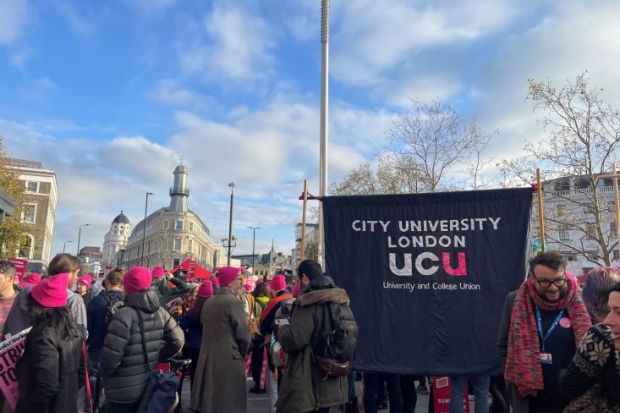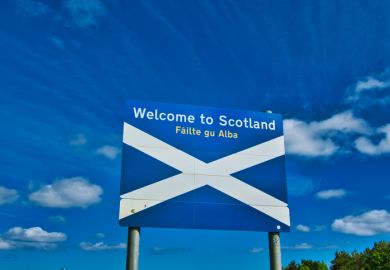MPs are to investigate whether UK universities should introduce a “standardised method of mitigation” for dealing with the impact of industrial action.
Members of the University and College Union (UCU) at 150 institutions went on strike in February in a dispute over pay, working conditions and pensions, before boycotting marking and assessment activities between April and September. This led to delays in thousands of students getting their degrees.
MPs on the House of Commons Education Committee have launched an inquiry into the impact of the action, with a particular focus on the efforts that universities made to minimise disruption. They highlighted that some institutions adopted a “no detriment” approach under which students were issued with temporary or confirmed marks and were able to progress, while students at other institutions “received preliminary, provisional or no awards until the end of the boycott”.
The inquiry will also examine the role of the Universities and Colleges Employers Association (Ucea), which represented vice-chancellors in the dispute.
“As with any form of industrial action, the UCU’s intention was to ensure the withdrawal of their labour was felt. And through the unprecedented length of the marking and assessment boycott, it was clear that large numbers of students were being caught in the middle, with some having to delay taking further qualifications or accepting jobs,” said Robin Walker, the committee’s chair.
“The purpose of this inquiry will not be to litigate the reasons for the industrial action, but to examine ways in which the damage could be limited through effective planning and mitigation by university leaders, working with the government and the unions. There were good examples of universities managing to limit students’ exposure to this disruption, but others too where students appeared to have been left high and dry, their lives put on hold.
“Lessons need to be learned. Our committee will now investigate how any similar scenario in future could be better managed and disruption to students minimised.”
The UCU balloted members on holding further industrial action this term, but although a majority of those participating voted “yes”, no action can take place because turnout was below the threshold required under trade union laws.
Raj Jethwa, Ucea’s chief executive, said he welcomed the inquiry “because it provides an opportunity to provide an accurate appraisal of the boycott”.
“Our feedback throughout the [boycott] was consistent, confirming limited and isolated impact across the sector, but this was no comfort to the students whose progression or graduation was disrupted, and this should never be an outcome of any industrial dispute,” Mr Jethwa said.
“We hope this inquiry also provides an opportunity to understand how HE institutions and their staff worked tirelessly to try to help the students affected by the boycott.”
Register to continue
Why register?
- Registration is free and only takes a moment
- Once registered, you can read 3 articles a month
- Sign up for our newsletter
Subscribe
Or subscribe for unlimited access to:
- Unlimited access to news, views, insights & reviews
- Digital editions
- Digital access to THE’s university and college rankings analysis
Already registered or a current subscriber? Login








